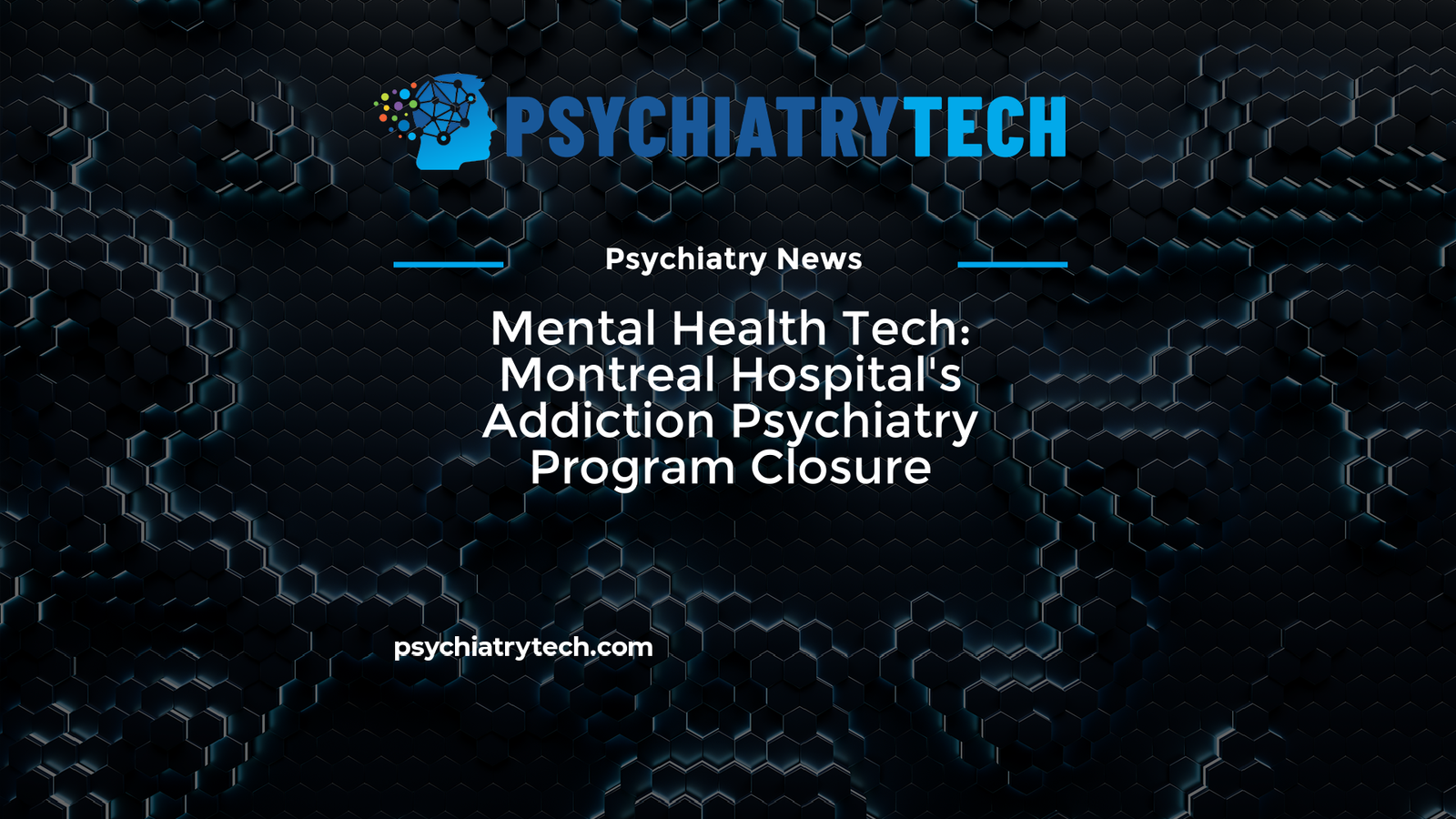Mental Health Tech: Montreal Hospital’s Addiction Psychiatry Program Closure
In an unfortunate turn of events, the McGill University Health Centre (MUHC) has announced its decision to shutter its Addiction Psychiatry program. The decision, which has sparked widespread concern, comes amidst strenuous efforts globally to prioritize mental health and offer targeted interventions to those battling addictions.
It is important to view this development in light of the broader context of mental health care spectrum, particularly in unwittingly ignoring the crucial role played by psychiatric interventions technology, a key component in contemporary mental health support.

Discover The World's MOST COMPREHENSIVE Mental Health Assessment Platform
Efficiently assess your patients for 80+ possible conditions with a single dynamic, intuitive mental health assessment. As low as $12 per patient per year.
Program Details and Implications
The Addiction Psychiatry Program at MUHC has been operational for three decades, offering valuable medical help to many. The team at this program lent psychological support to patients dealing with substance abuse disorders, alongside offering them essential tools and coping strategies.
With its imminent closure, the hospital administration has guaranteed the continuous support during the transition for the patients currently enrolled in the program. However, the longer-term implications of this program closure are not yet clear and have created a climate of uncertainty for the many depending on its resources.
Tech and Its Influence on Psychiatry
While the closure of this essential servicew as announced, the elephant in the room i.e., the potential for technology to bridge the resulting care gap is being overlooked. With the meteoric rise in telepsychiatry, digital cognitive behavioural therapy (dCBT), and mobile health apps, we are witnessing a seismic shift in the psychiatric care landscape.
These tech-driven mental health interventions afford easy access, flexibility, and personalized modes of therapy. Most importantly, they circumvent many traditional barriers like cost, stigma, and logistical challenges associated with in-person therapy using a tech-first approach.
The Way Forward
We must realize the potential that technology holds in transforming mental health treatment paradigms. Integrating innovative tech solutions within current treatment protocols can yield increased efficacy, reduced dropout rates, and better patient outcomes.
While the closure of the Addiction Psychiatry Program at MUHC seems inevitable, the broader message extends beyond the loss of a single program. It is a call to re-envision the future of mental health care, a future that synergistically combines the strengths of both traditional psychiatric care and modern tech innovations.
The challenge we face is not merely about replacing service lost but about optimizing and enhancing the quality of care by leveraging advancements in technology.
In conclusion
From equipping mental health professionals with novel tools to enabling patients in their recovery journey, technology stands as a powerful ally. Despite the closure of the Addiction Psychiatry Program at MUHC, let this be a timely reminder for all stakeholders in the mental health care system – to innovate, adapt and evolve with the changing times.
Are you aware of innovative tools that can be implemented in the field of psychiatry technology? Don’t forget to share this article on your social media platforms to spread the word about the transformative potential of technology in Psychiatry. Help us move the needle in mental health care.

